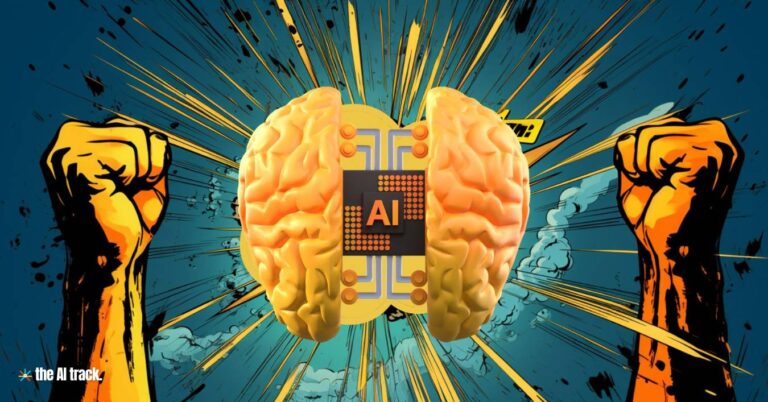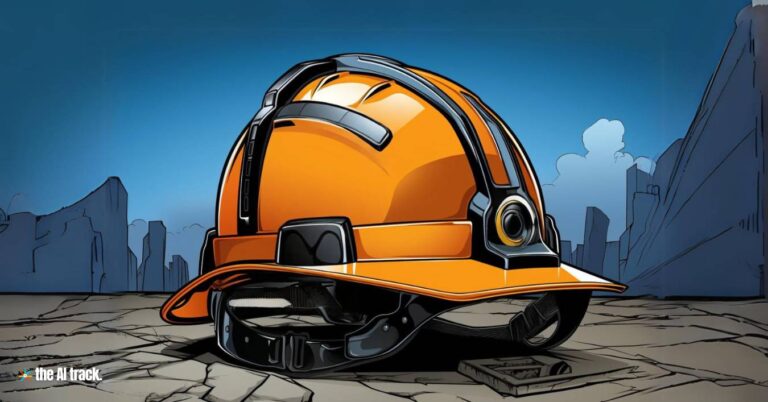Table of Contents
ToggleJobs in Transition: How AI is reshaping the future of work and why reskilling is crucial
Artificial intelligence (AI) is not a distant sci-fi fantasy anymore. It’s a reality that is reshaping the world as we know it. From healthcare to education, from manufacturing to retail, from entertainment to finance, AI is disrupting every industry and creating new possibilities for innovation, efficiency and growth.
But AI also poses significant challenges for the workforce. As AI automates tasks, augments human capabilities and creates new roles, workers need to adapt and acquire new skills to stay relevant and competitive in the changing landscape.
According to a new study by IBM, titled “The Global Skills Outlook: How COVID-19 Amplified the Need for New Skills”, 40% of the global workforce will need to be reskilled in the next three years due to AI. The study, based on a survey of more than 5,000 executives across 36 countries, also found that 59% of employers have accelerated their digital transformation plans due to the COVID-19 pandemic, which has increased the demand for digital skills such as cloud computing, cybersecurity, data analytics and AI.

The study identified four key skill categories that will be essential for workers in the age of AI:
- Digital skills: These are the skills related to using technology tools and platforms, such as cloud computing, cybersecurity, data analytics and AI. These skills are in high demand across all industries and occupations, as technology becomes more pervasive and integrated into every aspect of work.
- Behavioral skills: These are the skills related to human interactions and collaboration, such as communication, teamwork, empathy and creativity. These skills are crucial for working effectively with others, especially in diverse and remote teams, and for solving complex problems that require human ingenuity and innovation.
- Technical skills: These are the skills related to specific domains or functions, such as engineering, accounting, marketing or sales. These skills are often industry-specific or role-specific, and require specialized knowledge and expertise. These skills are also evolving rapidly due to technological changes and require constant updating and learning.
- Adaptability skills: These are the skills related to learning new skills and coping with change, such as critical thinking, resilience and curiosity. These skills are vital for workers who need to adapt to changing work environments, learn new technologies and processes, and embrace new opportunities and challenges.
The study also revealed that there is a significant gap between the supply and demand of these skills in the labor market. For instance, 41% of employers said that they struggle to find candidates with digital skills, while only 21% of workers said that they have these skills. Similarly, 33% of employers said that they struggle to find candidates with behavioral skills, while only 16% of workers said that they have these skills.
This gap indicates that there is an urgent need for reskilling workers in order to bridge the skill mismatch and prepare them for the future of work. Reskilling is not only a necessity but also an opportunity to enhance human potential and create more value for businesses and society.

Reskilling in the age of AI
Reskilling workers for the age of AI is not an easy task. It requires a collaborative effort from multiple stakeholders, including employers, educators, governments and workers themselves. Here are some strategies that can help workers reskill for the age of AI:
- Lifelong learning: Workers need to adopt a mindset of lifelong learning, which means being open to new knowledge, skills and experiences throughout their careers. Lifelong learning can help workers keep up with the changing demands of work, enhance their employability and career prospects, and foster their personal and professional growth. Workers can pursue lifelong learning through various channels, such as online courses, webinars, podcasts, books, blogs, mentors, peers and networks.
- Personalized learning: Workers need to identify their own learning needs, goals and preferences, and tailor their learning accordingly. Personalized learning can help workers focus on the skills that are most relevant and valuable for them, and learn at their own pace and style. Workers can use various tools and platforms, such as self-assessments, learning analytics, feedback systems, adaptive learning and gamification, to personalize their learning experience.
- Experiential learning: Workers need to learn by doing, which means applying their skills in real-world situations and contexts. Experiential learning can help workers gain practical experience, test their knowledge, improve their performance and learn from their mistakes. Workers can engage in experiential learning through various methods, such as projects, simulations, case studies, internships, apprenticeships and mentoring.
- Collaborative learning: Workers need to learn with and from others, which means interacting and cooperating with diverse people and perspectives. Collaborative learning can help workers develop their social and emotional skills, expand their network and access to resources, and generate new ideas and solutions. Workers can participate in collaborative learning through various modes, such as online communities, forums, groups, chats and video calls.

What are the benefits of reskilling workers for the age of AI?
Reskilling workers for the age of AI can bring multiple benefits for both workers and employers. Here are some of the benefits of reskilling workers for the age of AI:
- For workers: Reskilling can help workers enhance their skills, knowledge and competencies, which can improve their job satisfaction, performance and productivity. Reskilling can also help workers increase their employability, mobility and income potential, which can boost their career opportunities and security. Reskilling can also help workers discover new interests, passions and talents, which can enrich their personal and professional lives.
- For employers: Reskilling can help employers retain and develop their existing talent pool, which can reduce turnover costs, increase loyalty and engagement, and improve organizational culture. Reskilling can also help employers attract and recruit new talent, which can expand their talent pipeline, increase diversity and inclusion, and enhance innovation. Reskilling can also help employers optimize their workforce strategy, which can align their human capital with their business goals, increase agility and flexibility, and create a competitive advantage.
Key Takeaway
- AI is transforming the way we work, learn and live.
- A new IBM study reveals that 40% of workers will need to reskill in the next three years due to AI.
- Reskilling is not only a necessity but also an opportunity to enhance human potential and create more value for businesses and society.
- Reskilling workers for the age of AI requires a collaborative effort from multiple stakeholders, including employers, educators, governments, and workers themselves.
- Reskilling workers for the age of AI can bring multiple benefits for both workers and employers.





Pingback: IBM's Transformational Decision: 7,800 Jobs to be Replaced by AI